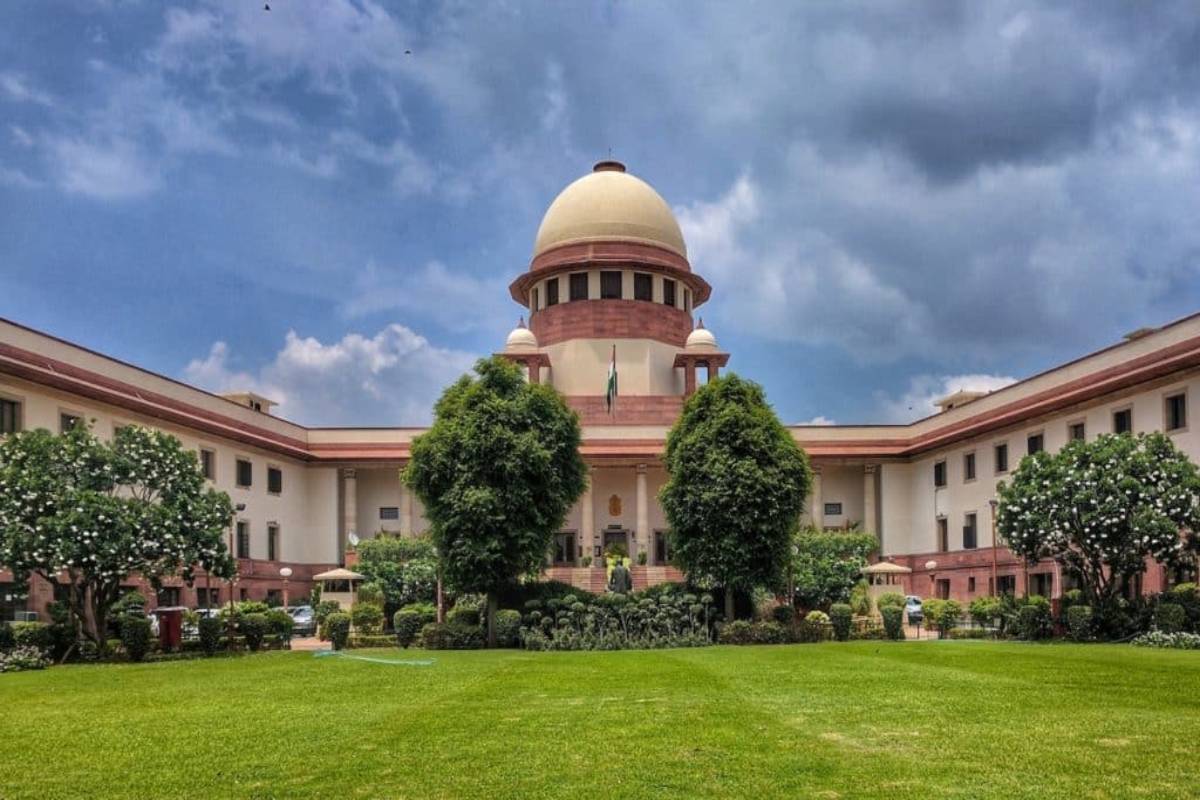SC seeks number of FIRs registered in instant triple talaq cases
Triple talaq ceased to exist on August 22, 2017, when the Supreme Court declared it void.
One of the greatest jurists the world has known, Oliver Wendell Holmes Jr. once said lawyers spend a good deal of their time “shoveling smoke”, which effectively means doing a good job of getting nowhere.
SNS | New Delhi | July 18, 2023 7:17 am

Supreme Court [File Photo]
One of the greatest jurists the world has known, Oliver Wendell Holmes Jr. once said lawyers spend a good deal of their time “shoveling smoke”, which effectively means doing a good job of getting nowhere.
From a Holmesian perspective, therefore, the decision of the Delhi High Court Bar Association to abstain from work for a day, as they did on Monday to express displeasure at the transfer of a judge, would only have meant shoveling a little less smoke. But the action itself must cause questions to be raised on the decision of the High Court bar, one that found echo in the district court at Tis Hazari, whose lawyers issued a similar call to abstain from work.
Advertisement
Is the transfer of a judge an exceptional act or a “rarest of rare” event as the two bar associations would have us believe? The framers of the Constitution enacted Article 222 to provide that the President may transfer a judge from one High Court to another after consultation with the Chief Justice of India.
Advertisement
With the process of consultation on appointments and transfers of judges having been well defined by various judgments, it is open to the Supreme Court Collegium headed by the Chief Justice of India to make such transfers as may be deemed necessary for the proper administration of justice. Much has been made by the two Bar Associations of how the transfer would “adversely affect the dispensation of justice on account of the consequent reduction of the existing strength” of judges at Delhi. The other contention raised by one of the associations is that the Delhi High Court was being deprived of the services of a judge who had pronounced 340 judgments within the space of a year. The dangerous facet of these contentions is the Bar’s presumption that the Collegium was unaware of the strength of the High court, or of the productivity of the judge.
The detailed order confirming the transfer shows the Collegium had embarked on a thorough process of consultation, even involving a Judge of the Supreme Court “conversant with the affairs of the Delhi High Court”. The Government, equally, must have been aware of all facts when it accepted the recommendation. In the circumstances, it was grossly irresponsible of the Bar Associations to have presumed they knew more about the judge and the administration of justice than the Collegium did, or to express resentment at the decision as they did. The Collegium took its decision on transfer of three HC judges on 5 July. It received representations from all three, and considered them. On 12 July, finding no merit in these, it decided to iterate its recommendations. Three days later, the government notified the transfers. In short, both the Collegium and the government acted with commendable transparency and alacrity. There, the matter ought to have rested, and the associations should have responded responsibly. That did not happen, and the cost was paid by litigants and by the system of justice that lawyers claim they wanted to protect.
Advertisement
Triple talaq ceased to exist on August 22, 2017, when the Supreme Court declared it void.
According to the data of the Union government’s Ministry of Health and Family Welfare, India reported 1,07,851 new cases of leprosy in 2023-24, accounting for 57 percent of the global disease burden. During the same period, 2,363 visible disability cases were recorded, making up 25 percent of disabilities reported worldwide.
The demand for semiconductors in India in the artificial intelligence (AI) era is likely to increase to 28 per cent by the end of 2026, close to the global expected demand of 29 per cent, according to a report on Tuesday.
Advertisement
